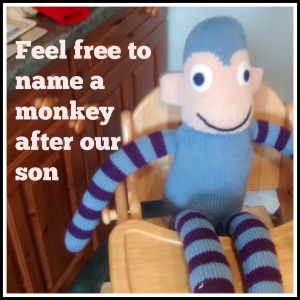 If you were famous, would you be bothered if a zoo decided to name a monkey after your newborn son or daughter? Personally, I wouldn’t be bothered. In fact, I’d be kind of flattered by this sort of honour. However, not everyone seems to agree.
If you were famous, would you be bothered if a zoo decided to name a monkey after your newborn son or daughter? Personally, I wouldn’t be bothered. In fact, I’d be kind of flattered by this sort of honour. However, not everyone seems to agree.
In the week that followed the birth of a daughter named Charlotte to the UK Royal Family’s William and Kate, a Japanese zoo was widely reported to have committed a diplomatic faux pas by naming a baby monkey Charlotte. In a public vote organised by the zoo, Charlotte was the most popular name. The zoo was forced to apologize following criticism from people who thought that the decision to call its new macaque Charlotte was not appropriate.
I may not be the sort person who purchases royal wedding commemorative crockery sets, but I really don’t see the problem with naming a monkey after a princess or a prince. After all, lots of parents playfully refer to their offspring as cheeky monkeys when they are young. Indeed, I am aware of several fellow parent bloggers who include ‘monkey’ in the name of their website. These include All Done Monkey, The Monkeys All Say Boo, You Clever Monkey, Schooling a Monkey and One Smiley Monkey.
Perhaps some would argue that deference to royalty should dictate that naming a monkey after a royal baby is not appropriate. However, I am inclined to disagree. I’d imagine it’s reasonable to assume that being born into a life of wealth and privilege does not preclude royal babies from displaying monkey-like characteristics or being branded ‘cheeky little monkeys’ by their own family and friends.
Now it may be that a Japanese zoo naming a monkey after a member of a foreign royal family is considered by some to be undiplomatic. That said, diplomacy is not always a trait displayed by members of royal families. An uncle of newly-born Princess Charlotte caused controversy ten years ago by turning up at a ‘colonials and natives’ fancy dress party wearing what was reported to be a Nazi costume. Charlotte’s great grandfather’s undiplomatic remarks have been the subject of several books and indeed a list of Ninety gaffes to mark ninety years that was drawn up by the UK newspaper The Independent.
There is another important question that needs to be asked about the topic of monkeys. What is it about monkeys that means that it’s potentially offensive to name one after a member of the UK royal family? After all, humans ‘share a common ape ancestor with chimpanzees‘ according to the Smithsonian Museum of National History. Given that some sorts of monkeys are apparently capable of using computers (see number 2 on the list), I’d love to offer one the opportunity to write a guest post on this blog sometime in the near future.
Given the fact that monkeys are often perceived to be comical and fun animals, it seems strange for it to be seen as potentially controversial to name one after a member of a royal family. Indeed, I certainly see it as no reason for going bananas.
What do you think about the Japanese’s zoo’s decision to name its newborn monkey after a newly born princess? Was it a mistake on their part or were the critics over-reacting? Please feel free to share your views in the comments section below or on the ‘Dad’s The Way I Like It’ pages on Facebook or Google+.
Remember that you can also subscribe to this blog by entering your e-mail address in the box on the right of the screen and also follow this blog via BlogLovin. There’s also now a Pinterest board for this blog as well, so please feel free to pin this post if you’ve enjoyed reading it.
I’ve added this post to the following parent blogger link-ups:











